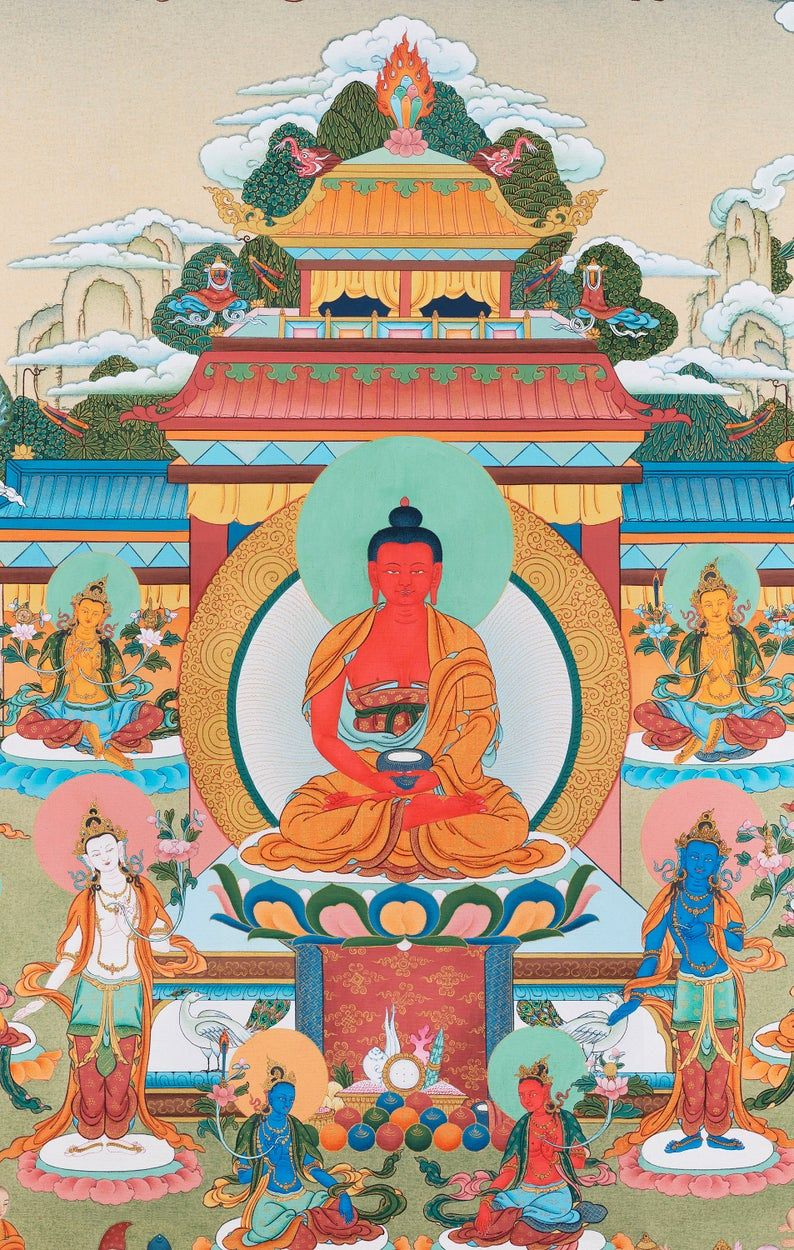Amitabha

Amitabha (Sanskrit for "infinite light"), also known as Amitayus ("infinite life"), Japanese Amida, and Chinese Emituo Fo, is the great savior Buddha in Mahayana Buddhism, particularly in the so-called Pure Land sects. Amitabha is associated with discernment and purity.
Amitabha has longevity and recognizes that every phenomenon in life is either empty or the result of illusions. This perception results in a lot of light and life. In some Buddhist texts, Amitabha appears as a former king who abdicated his throne after learning the Buddhist teachings. The iconography frequently depicts Amitabha with his left arm bare and his thumb and forefinger linked.
According to the Sukhavati-vyuha-sutras (the fundamental scriptures of the Pure Land sects), many ages ago, a monk named Dharmakara made a number of vows, the 18th of which promised that, upon his attaining Buddhahood, all who had faith in him and called upon his name would be reborn in his paradise and would reside there in bliss until they attained enlightenment. Having accomplished his vows, Dharmakara reigned as the Buddha Amitabha in the Western Paradise, known as Sukhavati, the Pure Land—a universe existing outside reality that embodied the utmost perfection.
Devotion to Amitabha arose in China around 650 CE and spread to Japan, where it resulted in the formation of the Pure Land school and the True Pure Land school in the 12th and 13th centuries, both of which have large followings today. The raig paintings of Japan's late Heian period beautifully depict Amitabha's Pure Land and Amitabha descending to welcome the newly dead (897–1185).










